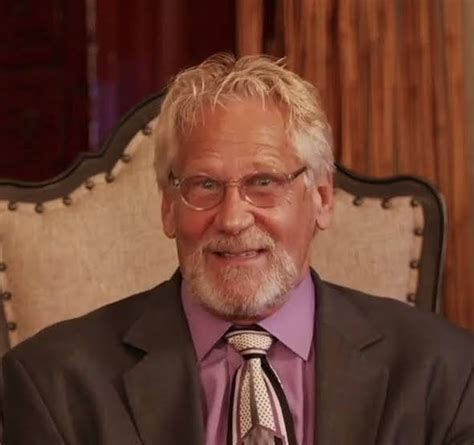A Quote by Meghan O'Rourke
Many researchers say the dominant emotion experienced after loss is yearning or searching. And while you might feel more anger early on, it's accompanied by a whole host of other feelings.
Related Quotes
If you vent anger with the object of spreading your toxic feelings, the result will have nothing to do with healing. Your anger is your weapon. On the other hand, if you release anger the way you'd expel a rock from your shoe, your intention clearly has healing behind it. Once the anger starts flowing, both of these alternatives might feel the same. Anger is anger. But if you have a healing intention, two things will happen: you will feel more peaceful after your anger has been released, and you will feel like an old, fixed belief in enemies and injustice has started to move.
The thing that bubbles up the most when I'm around other people is that I feel a joy of being alive. But I also am a very sensitive person and have many heavier feelings. It can be tiresome after a while to only do comedy, especially after you grow as a person. It starts to feel like you're playing an older version of yourself.
Researchers keep identifying new species, but they have no idea about the life cycle of a given species or its other hosts. They cut open an animal and find a new species. Where did it come from? What effect does it have on its host? What is its next host? They don't know and they don't have time to find out, because there are too many other species waiting to be discovered and described.
I suppose everyone is looking for love, and we live in a culture where we have opportunities to fall in love far more than once. A person might go through the dissolution of a major love or a minor love, but the frictions and feelings are very primal - heartbreak, longing, jealousy, anger - etc. People often say love is universal - which it is - so the loss of love naturally is too.
Whenever you feel a negative emotion be alone in a room and just sit down with it and feel. Don't judge it, criticize it, intellectualize it, explain it away. Allow yourself to feel the pain. It's okay. Accompany it - breathe into it - and after a while, you'll feel the anger or fear or sadness lose it's urgency and power. Allow God to tenderly embrace you in your pain. And then, at the right time, you can let go.
As my body lay dead on that stretcher (he later recovered from being struck by lightning attracted by his cell phone), I was reliving every moment of my life, including my emotions, attitudes, and motivations. The depth of emotion I experienced during this life review was astonishing. Not only could I feel the way both I and the other person had felt when an incident took place, I could also feel the feelings of the next person they reacted to. I was in a chain reaction of emotion, one that showed how deeply we affect one another.
Researchers find it very necessary to keep blinkers on. They don't want to admit that the animals they are working with have feelings. They don't want to admit that they might have minds and personalities because that would make it quite difficult for them to do what they do; so we find that within the lab communities there is a very strong resistance among the researchers to admitting that animals have minds, personalities and feelings.
The part of us that feels anger and depression is the same part that feels peace and love. If you refuse to feel the anger and the pain of a loss, you will not be able to feel anything else until that area heals. In other words, stay out of your own way. Let yourself feel bad if you want to feel bad. Feel joy, too. Healing is taking place. Give yourself the gift of healing.
[People] might have a different word for the yearning of the heart and the yearning of the spirit that is looking for what I call "God," it still is the same thing. It is the heart's yearning to know the origin of its mystery. It's a heart's yearning to know the power of the divine in each of our lives. It's a heart's yearning to be connected to that.
On occasions, after drinking a pint of beer at luncheon, there would be a flow into my mind with sudden and unaccountable emotion, sometimes a line or two of verse, sometimes a whole stanza, accompanied, not preceded by a vague notion of the poem which they were destined to form a part of.... I say bubble up because, so far as I could make out, the source of the suggestions thus proffered to the brain was the pit of the stomach.






































